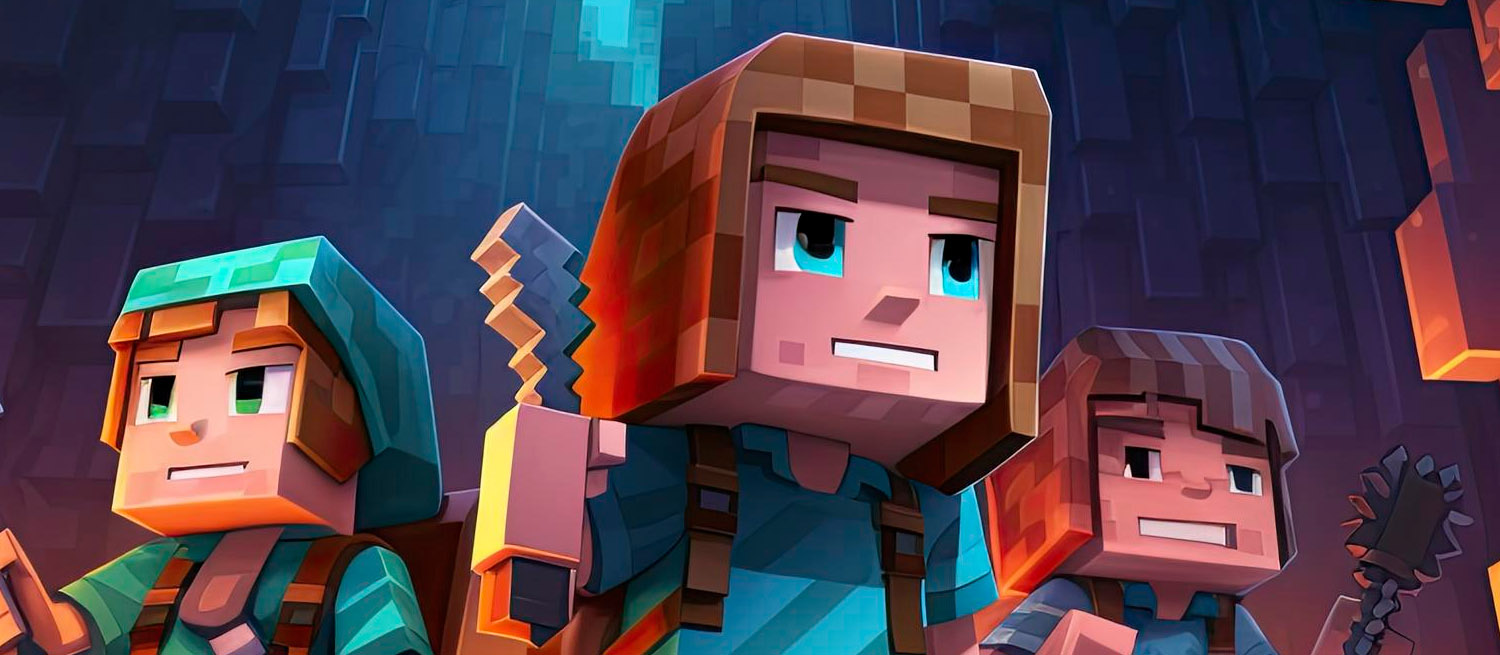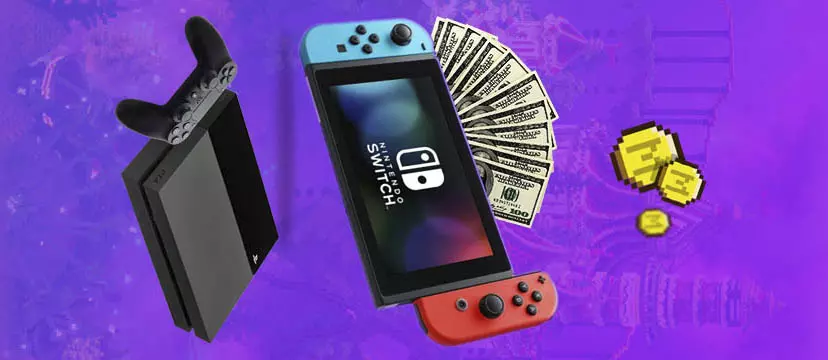Creating Minecraft mods branded under Team Visionary involves a few key steps.
Our team of experts at Team Visionary have put together a basic framework, detailing what is required when looking to develop a new Minecraft Mod.
- Research and Conceptualization:
- Research popular Minecraft mods to understand what players enjoy and what functionalities are lacking.
- Brainstorm unique ideas or improvements you can bring to the game. Consider what makes a mod fun, engaging, and valuable to players.
- Design and Development:
- Choose a development platform or environment. Popular choices include Java with the Minecraft Forge or Fabric API, or Bedrock Edition with add-ons.
- Start coding your mod based on the chosen platform. Ensure your code follows best practices and is efficient.
- Create custom assets such as textures, models, and sounds if needed.
- Testing and Refinement:
- Test your mod extensively to identify and fix any bugs or issues.
- Gather feedback from beta testers or a small group of players to refine your mod’s features and gameplay.
- Branding:
- Design a logo and visual identity for your Team Visionary Minecraft builders brand. Ensure it aligns with the theme of your mod.
- Create promotional materials such as banners, trailers, and social media posts to generate excitement around your mod.
- Release and Promotion:
- Launch your mod on platforms like CurseForge, Planet Minecraft, or the Minecraft Forums.
- Utilize social media, forums, and gaming communities to promote your mod.
- Engage with players and respond to feedback to maintain a positive reputation for your brand.
What makes a great Minecraft mod:
- Unique Concept: A mod that introduces a novel gameplay mechanic or adds something fresh to the Minecraft experience.
- Compatibility: Ensuring your mod works well with other popular mods and doesn’t cause conflicts.
- Stability: A stable mod that doesn’t crash frequently and runs smoothly.
- Regular Updates: Provide updates with new features, bug fixes, and optimizations to keep players engaged.
- Community Engagement: Listening to player feedback and actively engaging with the community to improve the mod.
Typically a great Minecraft mod becomes successful through a combination of several key factors:
- Innovation: Successful mods often introduce novel gameplay mechanics, features, or content that add value to the Minecraft experience. Innovation can set a mod apart from others and attract players looking for something new and exciting.
- Quality: High-quality mods are well-coded, stable, and free of game-breaking bugs or glitches. Players appreciate polished mods that provide a smooth, enjoyable experience without frequent crashes or issues.
- Compatibility: Compatibility with other popular mods and Minecraft versions is crucial for success. Mods that play nicely with others and offer compatibility patches or integration options tend to have a larger user base and greater longevity.
- Community Engagement: Engaging with the Minecraft community is essential for a mod’s success. Developers who listen to player feedback, participate in forums, and interact with fans on social media can build a loyal following and foster a supportive community around their mod.
- Regular Updates: Regular updates keep a mod relevant and maintain player interest over time. Updates should include new features, bug fixes, optimizations, and compatibility improvements to keep the mod fresh and enjoyable.
- Documentation and Support: Providing clear documentation, tutorials, and support resources helps players understand how to use the mod effectively and troubleshoot any issues. Mods with comprehensive documentation and active support channels tend to attract more users and retain them for longer.
- Promotion and Visibility: Effective promotion is crucial for attracting new players to a mod. Developers can promote their mods through platforms like CurseForge, Planet Minecraft, social media, and gaming communities. Creating compelling trailers, screenshots, and promotional materials can help increase visibility and attract attention to the mod.
- Passionate Development Team: A passionate and dedicated development team is essential for the long-term success of a mod. Developers who are committed to continuously improving and expanding their mod, even in the face of challenges or setbacks, are more likely to create a successful and beloved addition to the Minecraft community. Check out some alternative Minecraft skin ideas with our Minecraft resource tools.

What Skills are required to develop Minecraft Mods
Creating Minecraft mods requires a combination of technical skills, creativity, and problem-solving abilities. Here are the key skills required to make a Minecraft mod:
- Programming Skills: Most Minecraft mods are developed using programming languages such as Java for Minecraft Java Edition mods or JavaScript/JSON for Minecraft Bedrock Edition mods. Proficiency in programming is essential for implementing gameplay mechanics, adding new features, and fixing bugs.
- Knowledge of Minecraft APIs and Modding Tools: Familiarity with modding frameworks like Minecraft Forge or Fabric API for Java Edition mods, or Bedrock Edition modding tools like Add-ons or scripting languages for Bedrock Edition mods is necessary. Understanding how to use these tools and APIs is crucial for mod development.
- Understanding of Minecraft Mechanics: A deep understanding of Minecraft’s gameplay mechanics, such as block interactions, entity behaviour, world generation, and game events, is necessary to create mods that integrate seamlessly with the game and provide an enjoyable experience for players.
- Creative Design Skills: Creativity is essential for coming up with unique mod ideas, designing custom textures, models, and sounds, and implementing engaging gameplay mechanics. Creative design skills help make mods visually appealing and immersive for players.
- Problem-Solving Abilities: Modding often involves troubleshooting bugs, optimizing performance, and resolving compatibility issues with other mods. Strong problem-solving abilities are essential for diagnosing and fixing issues that arise during mod development. Using Minecraft adventure maps and other similar tools can help the end user solve problems with the Minecraft game.
- Version Control and Collaboration Skills: Familiarity with version control systems like Git and platforms like GitHub is beneficial for managing code changes, collaborating with other developers, and keeping track of project updates.
- Documentation and Communication Skills: Clear documentation helps users understand how to install, configure, and use the mod effectively. Effective communication skills are also essential for collaborating with other developers, engaging with the modding community, and providing support to mod users.
- Testing and Quality Assurance Skills: Thorough testing is essential for ensuring that the mod functions as intended, is free of bugs and glitches, and provides a smooth and enjoyable experience for players. Testing and quality assurance skills involve identifying and resolving issues through rigorous testing and feedback gathering.
By honing these skills and continuously learning and experimenting with modding tools and techniques, aspiring mod developers can create unique and compelling mods that contribute to the vibrant Minecraft modding community. From creating the rarest item in Minecraft to teaching the latest Minecraft building tips, the developers @ Team Visionary are on hand to help new developers create exciting Minecraft solutions.
Examples of other popular Minecraft mods:
- Optifine: Improves Minecraft’s performance, adds graphical enhancements, and allows for better customization of graphics settings.
- Biomes O’ Plenty: Introduces various new biomes, plants, and terrain generation options to enhance exploration.
- Tinkers’ Construct: Introduces customizable tools and weapons with various materials and modifiers, adding depth to crafting and combat.
- Thaumcraft: Adds magic and mystical elements to Minecraft with new spells, items, and mechanics. (Resource: Minecraft Marketplace)
- IndustrialCraft 2: Introduces industrial machinery, automation, and advanced technologies to Minecraft, expanding gameplay possibilities.




